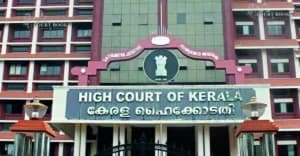In a significant development, the Supreme Court of India has relaxed the rules regarding the circulation of adjournment letters. This move came after a formal request was made by the Supreme Court Advocates-on-Record Association (SCAORA) to Chief Justice of India, BR Gavai.
The Supreme Court issued a fresh circular on May 19, 2025, modifying its earlier guidelines released on February 14, 2024.
Read Also: Trademark Disputes Not Always Outside Arbitration: Supreme Court Clarifies in Key Ruling
According to the new circular:
"Letters for adjournment of cases listed before the Hon'ble Courts are permitted to be circulated by the Advocates-on-Record or Parties-in-Person in all matters, except for fixed date or mentioned matters, till 11:00 a.m. on the previous working day."
However, this relaxation comes with a few conditions:
- Consent is mandatory: The consent or no objection from the advocate or party on the other side (including the caveator) must be obtained.
“Unless such prior consent/no objection... is obtained, the same would not be considered,” the circular states.
Read Also: Supreme Court Issues Notice on Plea Challenging AIBE Fee Structure by Bar Council of India
- Specific reasons required: The party requesting adjournment must mention valid reasons such as family bereavement, health issues, or other genuine causes. Also, the number of prior adjournments must be disclosed.
- Standard format:
“Request for adjournment shall be submitted in the prescribed format as per Annexure 'A' through e-mail: adjournment.letter@sci.nic.in.”
Previously, the adjournment letter could only be circulated once, and certain types of matters—such as bail hearings, sentence suspension cases, or cases where interim relief had already been granted—were completely barred from adjournment requests.
Now, under the revised circular, the only restriction is on fixed date or mentioned matters.
This change comes shortly after Justice BR Gavai assumed the role of Chief Justice of India. Following his oath, SCAORA’s Honorary Secretary Nikhil Jain had approached him with a request to allow adjournment letter circulation again and to notify the hearing sequence within the causelist itself.
Read Also: High Courts Can Quash Domestic Violence Act Complaints Using Section 482 CrPC: Supreme Court
“The SCAORA had requested restoration of adjournment letter circulation and transparency in the causelist order of hearings,” said a source familiar with the development.
With the updated rules, the Supreme Court aims to strike a balance between flexibility for advocates and smooth functioning of the judicial process.














